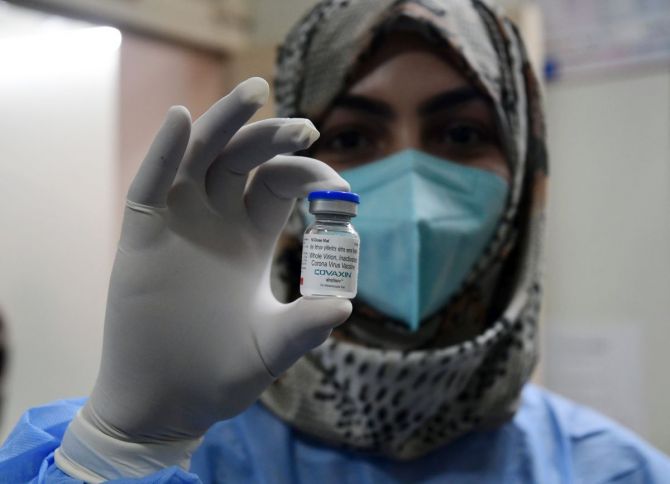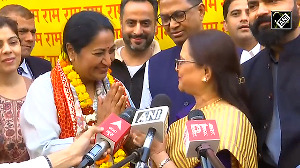Raches Ella, project lead, Covid-19 vaccines at Bharat Biotech said in a series of tweets that he was ‘surprised’ that media and researchers were drawing conclusions based on non-peer reviewed work.

After a study by a group of doctors concluded that Indian healthcare workers administered Covishield have shown better antibody response than Covaxin recipients, senior officials at Bharat Biotech said that the study had limitations.
Raches Ella, project lead, Covid-19 vaccines at Bharat Biotech said in a series of tweets that he was ‘surprised’ that media and researchers were drawing conclusions based on non-peer reviewed work.
Ella went on to add the limitations he felt that study had. “Limitation 1: Spike-based IgG's are not appropriate when evaluating Covaxin, which induces broad antibody responses to Spike, N, and M. Recommend live virus neutralisation. Limitation 2: Past history of Covid was based on verbal response and not by a pre-vaccination IgG test. The study fails to account for asymptomatics (predominant presentation of Covid) and introduces misclassification bias. SARS-CoV-2 naïve participants may not be naïve after all,” he explained is his tweets.
Earlier, Samiran Panda, head of epidemiology and communicable division at the Indian Council of Medical Research, which is a co-developer of Covaxin, had told Business Standard that antibody developed or not developed is a binary variable. What needs to be examined is the difference between mean or median titre between the two groups.
Panda had said, “Antibody developed or not developed is a binary variable (above a predefined laboratory cut-off). However, what is the result from a quantitative comparison -- also needs to be examined -- is the difference between the mean or median titre between the two groups.”
He felt that these comparisons allow for population level inference (not for any particular individual), provided the sample of participants in the study is drawn randomly from the total population of interest. “Any arbitrary draw of a sample brings in a bias and does not allow extrapolation of inference on a larger universe of people,” said Panda.
Moreover, immunity is not only guided by the humoral arm of immunity but also the cellular arm, Panda felt. “Finally, it should also be appreciated that immunity is guided not only by the humoral arm of the immunity (determined by neutralising antibody titres, etc) following vaccination, but also by the cellular arm, which determines immune memory,” he said.
The study, published in an online archive for unpublished manuscripts in medical sciences medRxiv, showed that after two shots of the vaccines, 98 per cent recipients of Covishield showed antibody response, while the same was 80 per cent among Covaxin recipients. The study published by a group of doctors -- Awadhesh Kumar Singh, Sanjeev Ratnakar Phatak, Ritu Singh, Kingshuk Bhattacharjee, Nagendra Kumar Singh, Arvind Gupta, and Arvind Sharma -- has not been peer-reviewed yet. The researchers have declared no competing interest and that no funding was received for this cross-sectional study.
The study was aimed at analysing the antibody response after two complete doses of Covishield and Covaxin in Indians. “We assessed the humoral immune response after the completion of two doses of both ChAdOx1-nCOV (Covishield) and BBV-152 (Covaxin) vaccines in Indian healthcare workers,” the authors said. A pan-Indian cross-sectional coronavirus vaccine-induced antibody titre (COVAT) study was conducted that measured Sars-CoV-2 anti-spike binding antibody quantitatively 21 days or more after the first and second dose of two vaccines in both Sars-CoV-2 naïve and recovered healthcare workers.
Among the 515 healthcare workers (305 male and 210 female), 95 per cent showed seropositivity after two doses of both vaccines. Of the 425 Covishield recipients, 98.1 per cent showed seropositivity, and of the 90 Covaxin recipients, 80 per cent showed seropositivity. Seropositivity means having the presence of antibodies in the blood serum.












 © 2025
© 2025